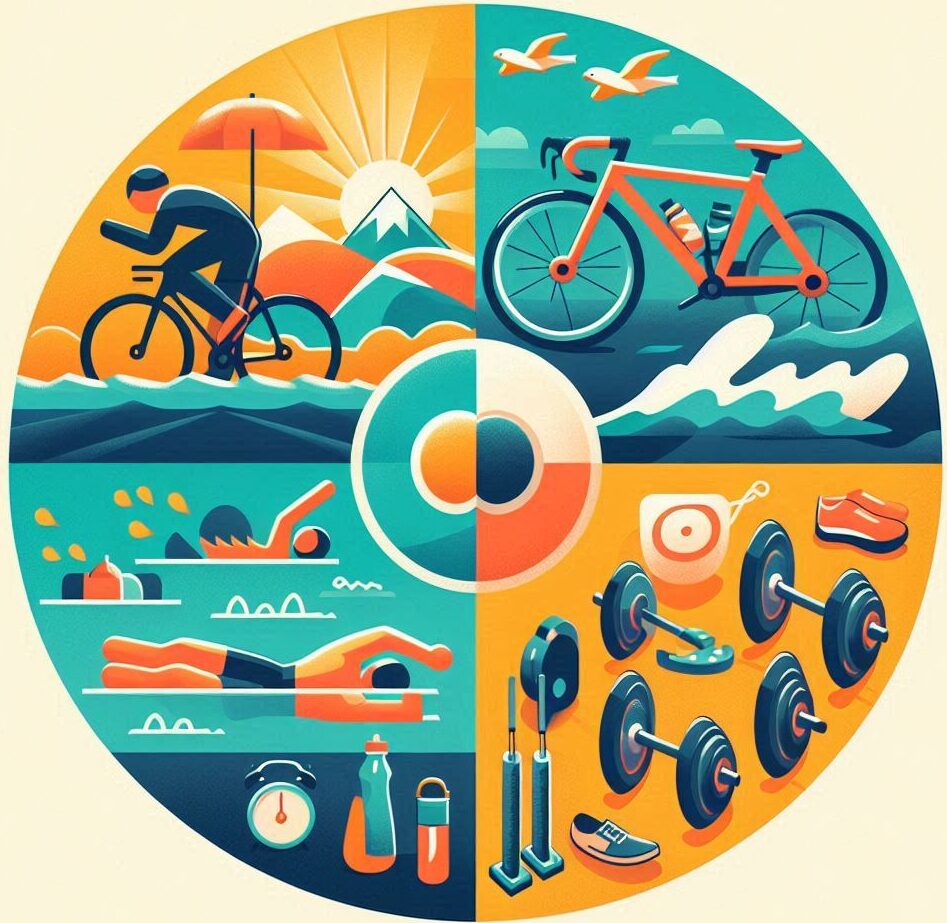Training for a marathon isn’t just about running; it’s also about the preparation work that lays a solid foundation for success. Before you hit the pavement, consider what kind of time and commitment you’re about to invest. Marathon training isn’t a sprint; it’s a slow and steady build that takes months of dedication.
Getting real about your current fitness level is key. Are you a seasoned runner or a newbie? Setting a realistic goal makes a huge difference. Maybe you aim to finish or set a personal best. It’s all good as long as it matches where you are now. Your goal is your North Star, guiding the journey ahead.
The right gear can make or break this experience. Ever tried running in sneakers that tear up your feet? Not fun. Find shoes that fit well and support your running style. Comfortable attire is a must, too—because nobody needs chafing as an extra challenge. Technology like fitness trackers can be great for monitoring progress if you’re into that kind of thing.
Do not forget that it’s wise to talk with a healthcare or fitness professional. They can tailor a plan just for you, considering any medical conditions or past injuries. It’s these early steps that set you up for the miles ahead, turning what seems like an impossible feat into an achievable goal.
Building a Strong Foundation through Training
You’ve got your goal lined up and your gear sorted. Now it’s all about that consistent focus called training. Whether you’re a beginner or practically a marathon expert, having a plan that’s just right for you matters. Many plans are out there. Some are built for total beginners, others for those who’ve been around the block—or the track—a few times.
It’s tempting to want to hit those high mileages right off the bat, but slow and steady wins the race. Increasing mileage gradually is key to staying injury-free and stress-free. Long runs on weekends? Yeah, they become your new best friends. Each week, they’re the chance to push just a little more. Joint Health (affiliate link)
Cross-training isn’t just for gym class! Mixing in biking, swimming, or strength training helps boost endurance and keeps things interesting. Plus, it’s legit one of the best ways to prevent burnout and stay injury-free.

Keeping tabs on how things are going is essential. Listen to what your body’s saying. Feeling a bit more tired than usual? Maybe dial it back. Crushing those long runs feeling like a superhero? You’re on the right track. Adjusting based on feedback isn’t just smart—it’s essential for making real progress.
Nutrition and Hydration Strategies for Runners
Fueling your body right is a game-changer in marathon training. What’s on your plate matters since nutrition helps you go the distance. You’ve got to think about carbs, proteins, and fats. Carbohydrates are your main food since they’re the primary fuel source during those lengthy runs.
Staying well-hydrated can’t be overemphasized. It’s not just about guzzling water—the timing and amount are crucial. Checking in with how much you’re drinking before, during, and after runs makes a big difference. Keep an eye out for weather changes, as hot or cold temps can mess with your hydration needs.
Trying out energy gels, chews, or drinks before race day is smart. Trusting your gut literally means listening to your body to find what doesn’t mess with your stomach at mile 15.
Recovery nutrition plays a starring role, too. Think about what you eat after a run as the building blocks for muscle repair. Protein and carbohydrates should be your go-to right after your sessions since they speed up recovery and keep you feeling strong. Electrolytes are another must to help balance what you sweat out.
Mental Preparation and Race Day Management
Running a marathon isn’t just a test of physical endurance; it’s a mental game too. Training the mind is crucial. Techniques like setting small goals, whether it’s reaching the next mile or the finish line, can keep you motivated.
Visualization isn’t just for elite athletes. Picturing yourself crossing that finish line can be a powerful motivator. Coupled with positive thinking, these strategies can help crush doubts and nerves leading up to race day.
Plan race day logistics like a professional. Knowing when and what to eat, getting your gear ready, and having a pre-race ritual can calm those jitters and set you up for success. A solid warm-up and pacing strategy are just as vital.
Resting up before the race sounds obvious, but it’s often overlooked. A proper tapering period ensures that your body is at its best without the risk of burnout.
Once the race is done, take the time to soak in what you’ve accomplished. Recovery should focus on celebrating your achievements while listening to your body’s need for rest. Analyzing your performance can provide insights for future races.
Ideal Running trainers (Affiliate link)
JORTO Rowing Machine (affiliate link)
Loose weight while you sleep with this amazing product. (affiliate link)
Here’s a little transparency: Our website contains affiliate links. This means if you click and make a purchase, we may receive a small commission. Don’t worry, there’s no extra cost to you. It’s a simple way you can support our mission to bring you quality content.”
